
Exploring future possibilities to improve evaluation and management of traumatic brain injury provides insights about current challenges and opportunities associated with mild traumatic brain injury (mTBI) assessment and management. Limitations of existing diagnostic tools, lack of standard definition and guidelines, and poor awareness among patients and physicians create a challenging landscape for understanding the risks associated with mTBI globally. This article also explores the current evidence around novel biomarkers as opportunities for improving evaluation and management of traumatic brain injury.
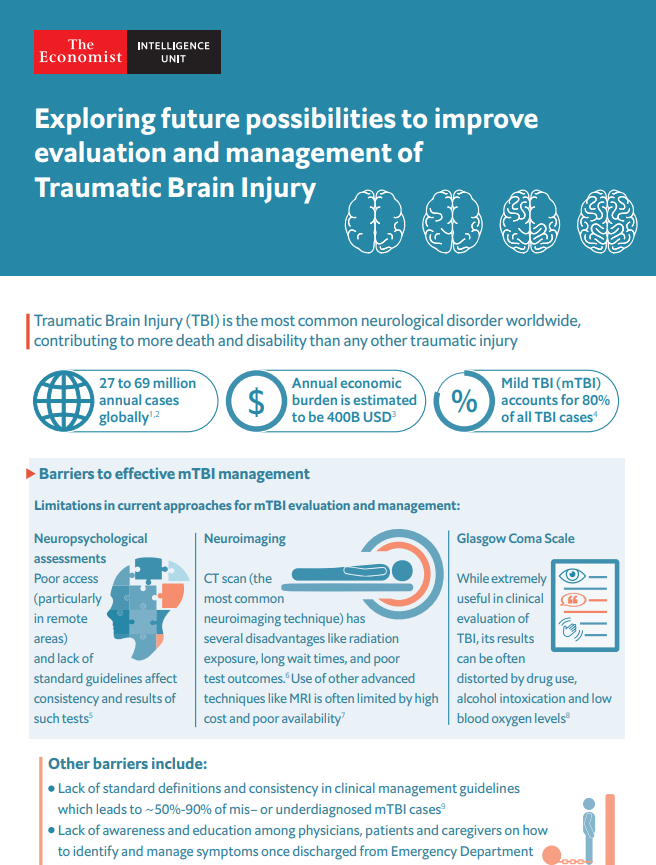 This infographic provides a snapshot of key data points and insights around the limitations in current approaches for mTBI evaluation and management. It also shows advancements in the use of biomarkers that have the potential to transform the assessment and care for mTBI patients.
This infographic provides a snapshot of key data points and insights around the limitations in current approaches for mTBI evaluation and management. It also shows advancements in the use of biomarkers that have the potential to transform the assessment and care for mTBI patients.
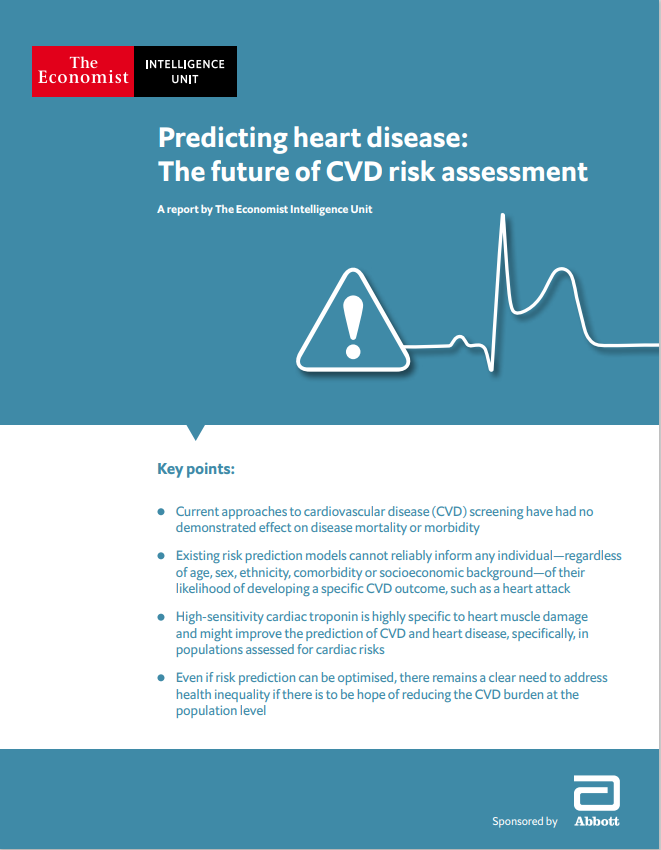
Predicting heart disease: The Future of CVD risk assessment offers thoughtful questions and insights about current challenges and opportunities associated with cardiovascular (CVD) risk assessment. While over 350 risk stratification models have been developed globally, inconsistencies and variable sensitivity to specific outcomes creates a challenging landscape for understanding CVD risk globally. This article explores the current evidence around novel biomarkers and other factors, such as mitigating the impact of health disparities, as opportunities for improving CVD risk stratification in the future.
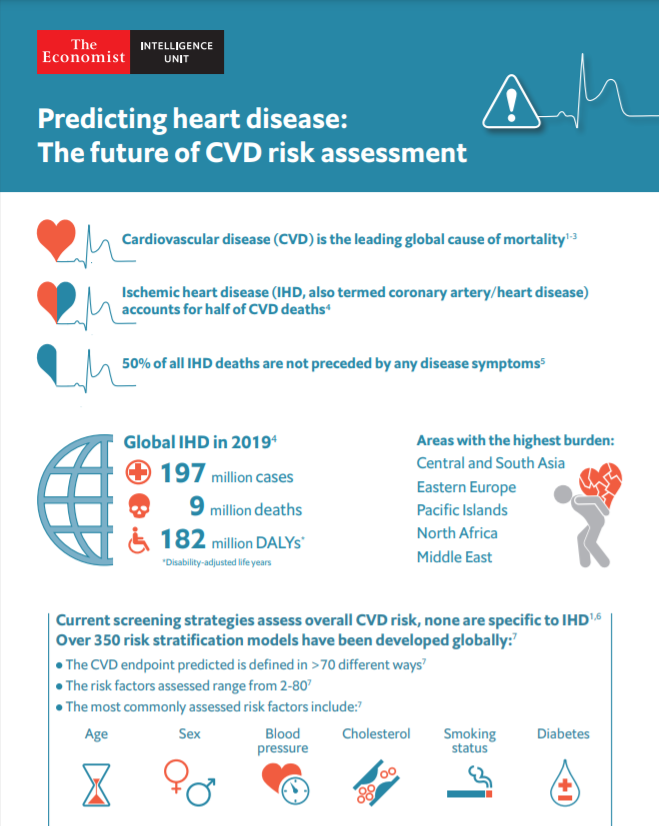 This infographic provides a snapshot of key data points and insights around CVD risk prediction, with a focus on ischemic heart disease (IHD). It identifies the core circulatory biomarkers that have the potential to improve cardiovascular risk prediction.
This infographic provides a snapshot of key data points and insights around CVD risk prediction, with a focus on ischemic heart disease (IHD). It identifies the core circulatory biomarkers that have the potential to improve cardiovascular risk prediction.
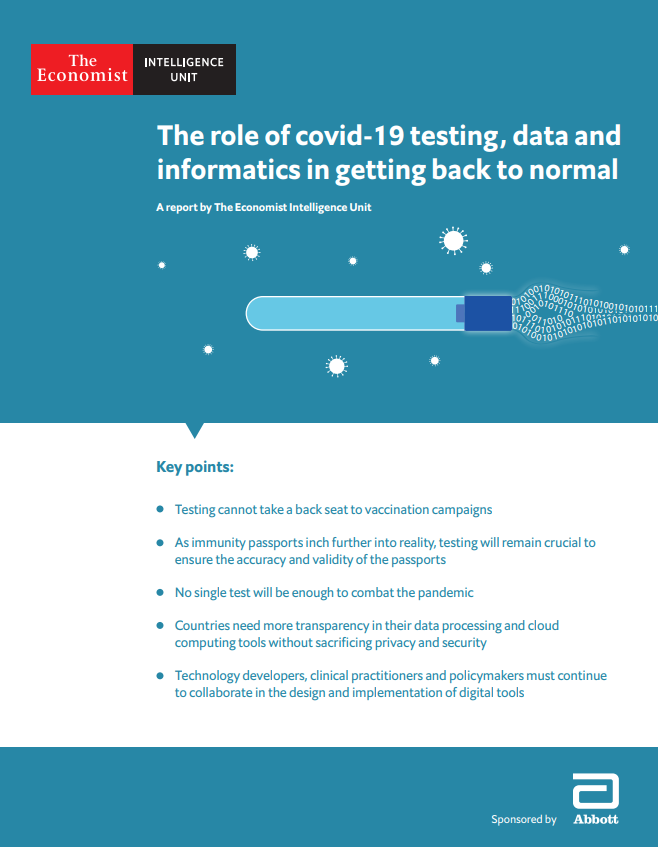
The role of covid-19 testing, data and informatics in getting back to normal provides a view into the landscape of testing for covid-19, and highlights the importance of continued testing around the world. Various technologies, including artificial intelligence, electronic health records and telehealth will underscore this by synthesizing the critical data that testing provides and maximizing how this data can be used to combat the pandemic and build resiliency within global health systems.
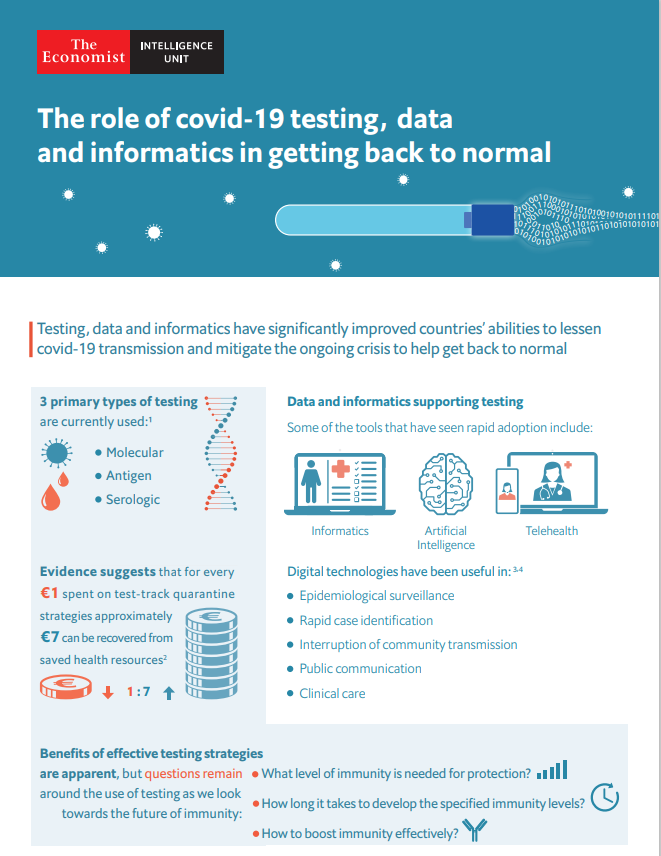 This infographic provides a snapshot of key data points and insights around covid-19 testing and effective testing strategy. It also presents a future outlook on how countries can use testing, data and informatics as tools to improve healthcare outcomes.
This infographic provides a snapshot of key data points and insights around covid-19 testing and effective testing strategy. It also presents a future outlook on how countries can use testing, data and informatics as tools to improve healthcare outcomes.
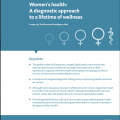 Women's health: A diagnostic approach to a lifetime of wellness provides a holistic view of women’s health, focusing on how early diagnosis and prevention can help women achieve a lifetime of wellness. Success depends in part on the use of innovative diagnostic tools such as testing for biomarkers to identify diseases in women before they advance to a more critical stage. This article explores the current state of women’s healthcare and the new tools and ideas that can better secure their wellness.
Women's health: A diagnostic approach to a lifetime of wellness provides a holistic view of women’s health, focusing on how early diagnosis and prevention can help women achieve a lifetime of wellness. Success depends in part on the use of innovative diagnostic tools such as testing for biomarkers to identify diseases in women before they advance to a more critical stage. This article explores the current state of women’s healthcare and the new tools and ideas that can better secure their wellness.
Download Women's Health Infographic
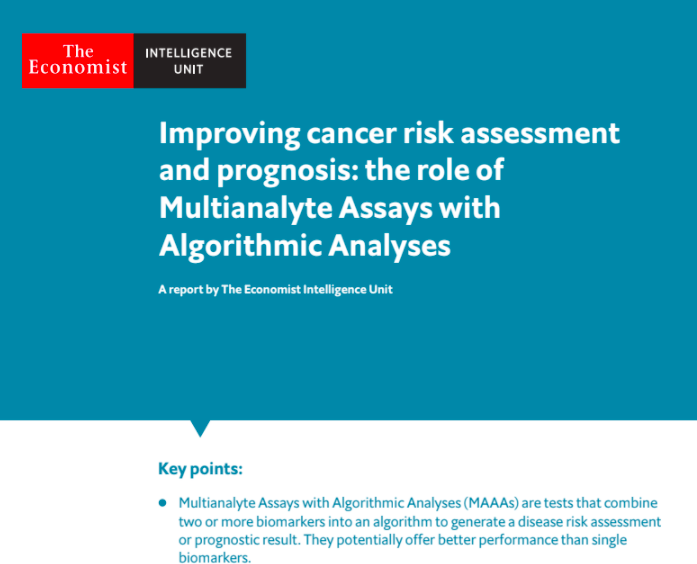 Improving cancer risk assessment and prognosis: the role of Multianalyte Assays with Algorithmic Analyses offers three short case studies to illustrate how MAAAs can contribute to the assessment and management of cancer in three cancers: ovarian, liver and lung. This article explores how MAAAs are relatively common in ovarian cancer, but are less established in liver cancer, where they are mostly used to augment the use of imaging technology. In lung cancer, the last decade has seen the establishment of biomarker testing for screening at the centre of best practice.
Improving cancer risk assessment and prognosis: the role of Multianalyte Assays with Algorithmic Analyses offers three short case studies to illustrate how MAAAs can contribute to the assessment and management of cancer in three cancers: ovarian, liver and lung. This article explores how MAAAs are relatively common in ovarian cancer, but are less established in liver cancer, where they are mostly used to augment the use of imaging technology. In lung cancer, the last decade has seen the establishment of biomarker testing for screening at the centre of best practice.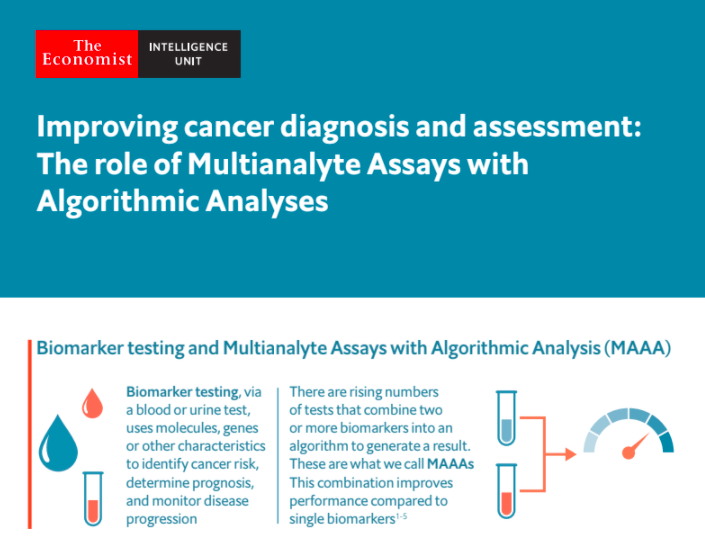
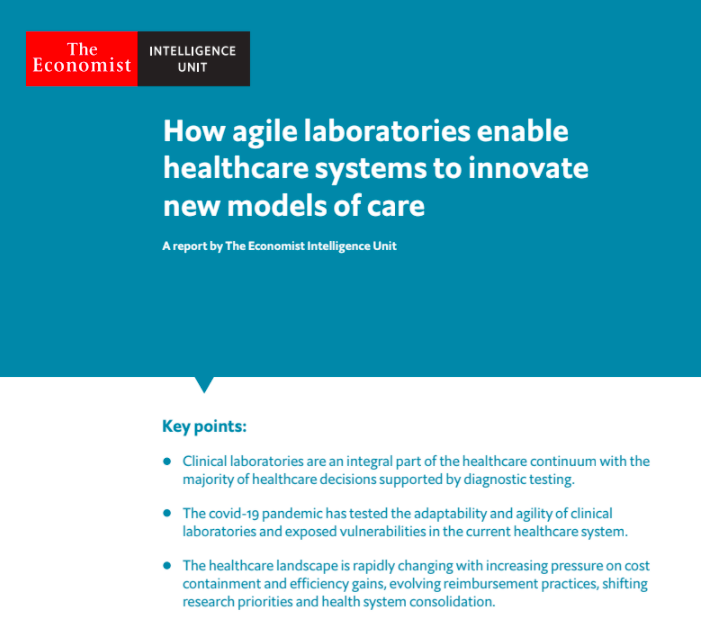
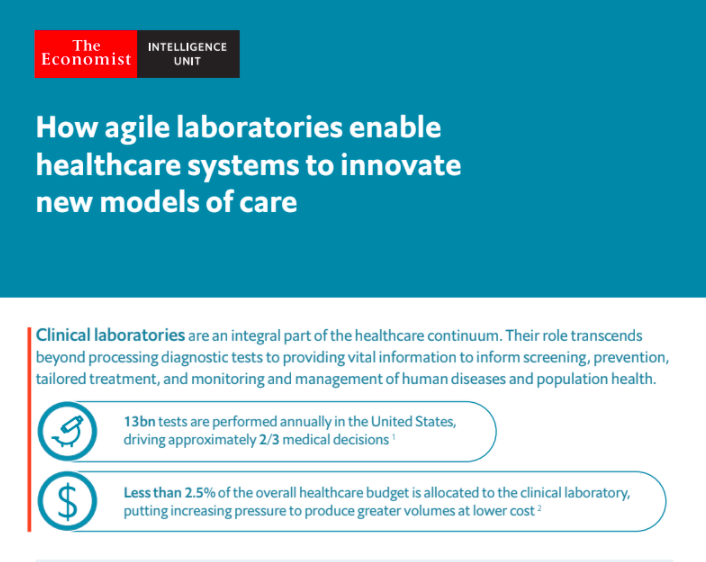
Download Clinical Laboratories Infographic




